Spacewalk tools with Thomas and Shane
Tuesday, 22 March 2022 16:00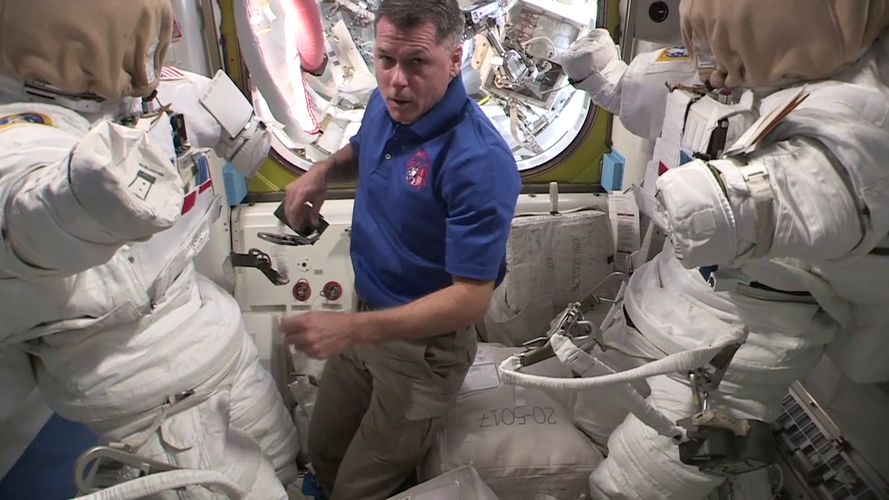 Video:
00:08:35
Video:
00:08:35
Use the right tool for the job is an often heard saying for any technician, or home hobbyist, and in spaceflight the advice counts double. When astronauts head on a spacewalk outside the International Space Station their tool belt is analysed, choreographed, prepared and checked in detail.
Many tools are made to measure, but in addition they are ordered on the tool belt to be easy to access at the time needed. When everything floats each tool is tethered to the spacewalk suit as well.
In this video ESA astronaut Thomas Pesquet is reciting the tools he and NASA
A research study analyzes the characteristics of Apophis, the asteroid that will approach Earth in 2029
Tuesday, 22 March 2022 14:31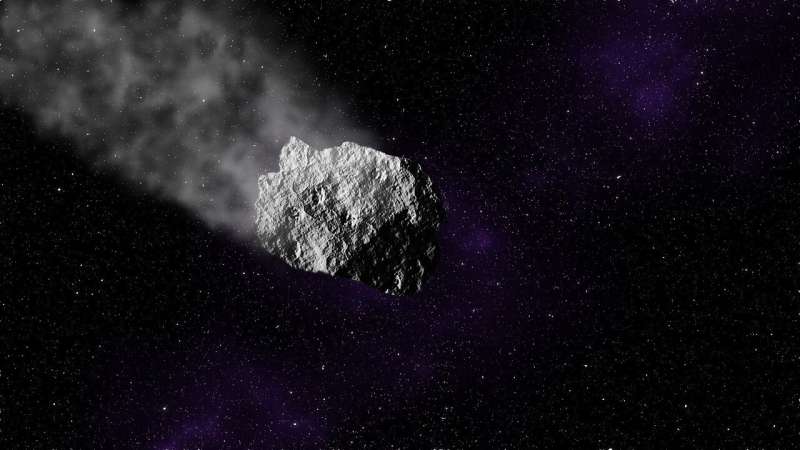
The study, in which the Universidad Carlos III de Madrid (UC3M) and the Universidad Estatal Paulista Júlio de Mesquita Filho (Júlio de Mesquita Filho Paulista State University) (UNESP) of Brazil are participating, analyzes the surface and dynamics of Apophis, an asteroid that will pass close to Earth in 2029.
The Apophis asteroid was discovered in 2004 and has been monitored since then due to its classification as a potentially hazardous asteroid (PHA), as it was estimated that it would have a 2% chance of hitting Earth. This possibility has already been ruled out and, according to the latest measurements, Apophis will reach its closest trajectory to Earth (38,000 kilometers) on the 13th of April, 2029.
This study analyzes the physical characteristics of this celestial body and the possible effects that its approach to Earth may have. Gabriel Borderes-Motta, a researcher at UC3M's Department of Bioengineering and Aerospace Engineering, explains that "collision is not the only possibility in approach events like this one. The gravitational interaction between a planet and a body such as Apophis can change the shape of the body, break the body into pieces, disintegrate possible loose stones on the asteroid's surface, or even remove other bodies orbiting the asteroid (such as rocks, satellites, or rings).
Turn your phone into a space monitoring tool
Tuesday, 22 March 2022 14:30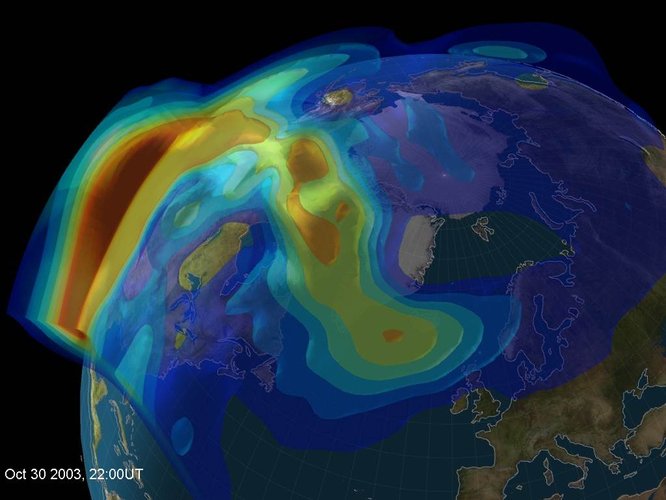
A newly released Android app will turn your smartphone into an instrument for crowdsourced science. Leave it by your window each night with your satnav positioning turned on and your phone will record small variations in satellite signals, gathering data for machine learning analysis of meteorology and space weather patterns.
GEO operators say they can compete against LEO systems on cost
Tuesday, 22 March 2022 14:17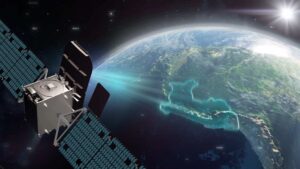
Despite all the investment in low Earth orbit broadband megaconstellations, operators of geostationary satellites argue they can offer more cost-effective services.
The post GEO operators say they can compete against LEO systems on cost appeared first on SpaceNews.
Video: What are the Trojan asteroids?
Tuesday, 22 March 2022 12:48Use this form if you have come across a typo, inaccuracy or would like to send an edit request for the content on this page. For general inquiries, please use our contact form. For general feedback, use the public comments section below (please adhere to guidelines).
Please select the most appropriate category to facilitate processing of your request
Telstra to build teleports for OneWeb constellation
Tuesday, 22 March 2022 12:48
Australian communications company Telstra announced plans March 22 to build and maintain three dedicated teleports to provide satellite gateway services in the Southern Hemisphere for OneWeb’s broadband constellation.
The post Telstra to build teleports for OneWeb constellation appeared first on SpaceNews.
On National Security | DoD’s internet-in-space a win for commercial space
Tuesday, 22 March 2022 11:21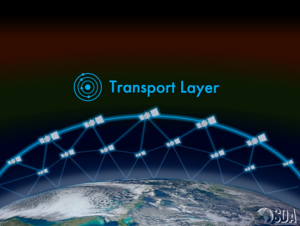
The Space Development Agency is overseeing the Defense Department’s first major procurement of small satellites in low Earth orbit, a trend that has accelerated in the commercial industry as companies plan ever-larger megaconstellations.
The post On National Security | DoD’s internet-in-space a win for commercial space appeared first on SpaceNews.
Satellite navigation signals help map sea surface shape
Tuesday, 22 March 2022 10:30 Video:
00:05:00
Video:
00:05:00
Monitoring the constantly changing shape of the sea surface is important for scientific and societal applications such as ocean current forecasting, climate research, ship routing, cable laying, and debris tracking.
A project supported by the Discovery element of ESA’s Basic Activities recently investigated a new technique to measure sea surface topography very precisely. The project was based on an idea submitted by the Institute for Space Studies of Catalonia (IEEC) through the Open Space Innovation Platform (OSIP) – ESA’s place for your space ideas.
The technique involves looking at satellite navigation (GNSS) signals that have been reflected off of
Settle the TRAPPIST exoplanets: challenge for evolutionary computing
Tuesday, 22 March 2022 10:04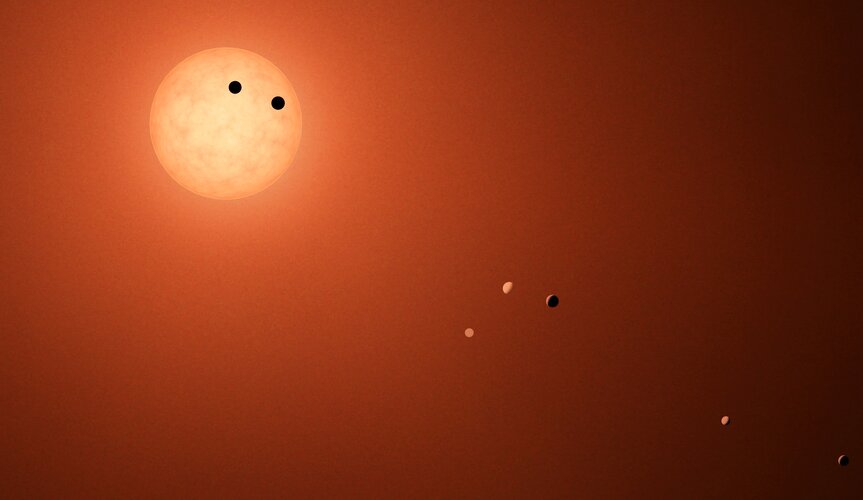
It reads like a work of science fiction: software that mates, reproduces and mutates being deployed to plan the exploration and settlement of the exotic TRAPPIST-1 solar system, around 40 light years away from Earth. In fact this is the latest competition conceived by ESA’s Advanced Concepts Team, this time seeking to challenge the worldwide evolutionary computing community.
Space-grown lettuce could help astronauts avoid bone loss
Tuesday, 22 March 2022 08:00
NASA is preparing to send humans to Mars sometime in the 2030s. The 3-year mission will expose astronauts to a long period of microgravity, which will cause them to lose bone mass. But now, scientists report transgenic lettuce that produces a bone-stimulating hormone. Someday, astronauts could grow the lettuce in space and help guard against bone loss—simply by eating a big bowl of salad. In addition, the lettuce might help stave off osteoporosis in resource-limited areas here on Earth, the researchers say.
The researchers will present their results today at the spring meeting of the American Chemical Society (ACS).
Previous studies of astronauts on extended space missions have shown that they lose, on average, more than 1% of bone mass per month spent in space, a condition known as osteopenia.
Watch live: first space steps for Matthias
Tuesday, 22 March 2022 07:30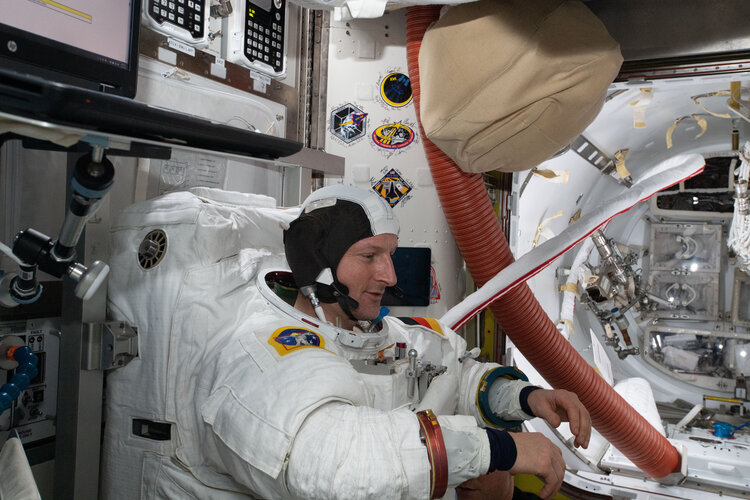
Tune in to ESA Web TV channel 2 from 12:30 CET (11:30 GMT) this Wednesday 23 March to watch ESA astronaut Matthias Maurer’s first spacewalk, known as US EVA 80, live from the International Space Station.
Micro-geostationary satellite enters design phase
Tuesday, 22 March 2022 07:27
A small but powerful European telecommunications satellite – the first of a series – is to be developed under a contract signed between ESA and SWISSto12, an innovative company based in Renens, Switzerland.
SES to acquire Leonardo DRS satcom business for $450 million
Tuesday, 22 March 2022 07:16
Leonardo DRS, a provider of satellite communications services to the U.S. government, announced March 22 it is selling its satcom business to satellite operator SES in a $450 million deal.
The post SES to acquire Leonardo DRS satcom business for $450 million appeared first on SpaceNews.
Lockheed Martin to launch new satellite bus aimed at mid-size market
Monday, 21 March 2022 22:22
Lockheed Martin plans to launch to orbit later this year a new satellite bus the company designed for both the commercial and government markets.
The post Lockheed Martin to launch new satellite bus aimed at mid-size market appeared first on SpaceNews.
E-Space taps Rocket Lab to launch three demo sats by July
Monday, 21 March 2022 21:27
Rwanda-backed megaconstellation startup E-Space said March 21 it has contracted Rocket Lab to launch three demo satellites in the second quarter of this year.
The post E-Space taps Rocket Lab to launch three demo sats by July appeared first on SpaceNews.

